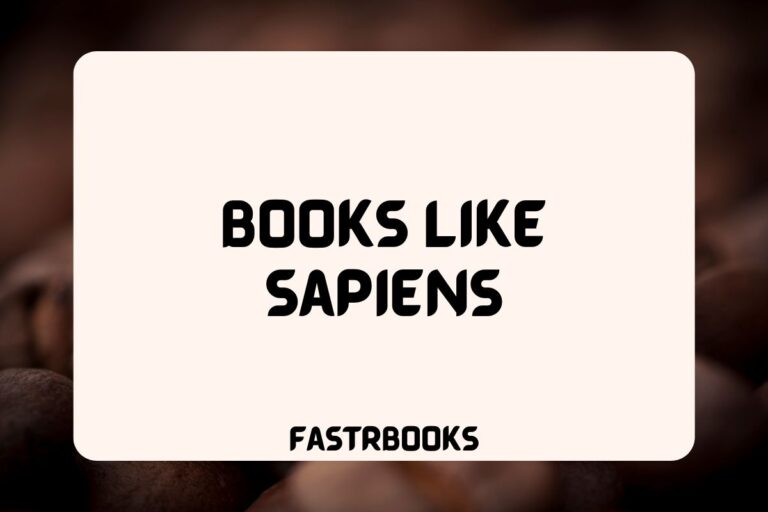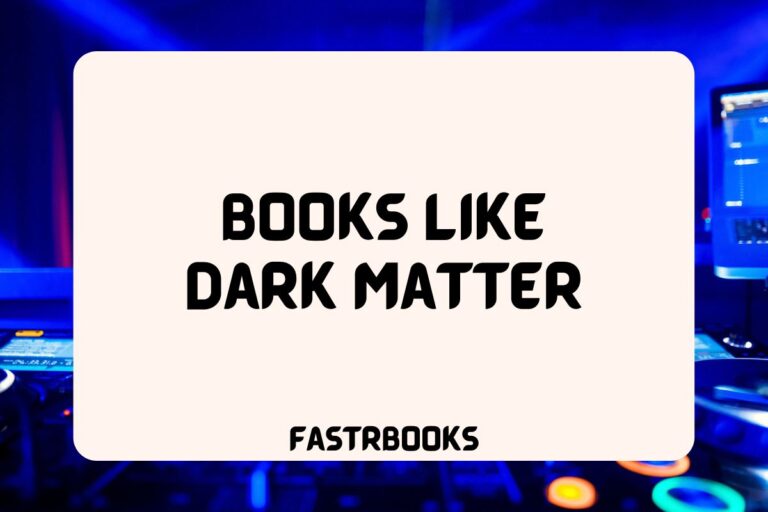18 Books Like Song of Achilles
“The Song of Achilles” by Madeline Miller has been a hot-favorite among bibliophiles like you and me, for it’s arguably perfect portrayal of love, fate, and mythology set against the backdrop of ancient Greece.
Miller’s lyrical prose and heartfelt storytelling have left many searching for similar literary experiences that evoke the same emotional depth and exploration of timeless themes.
Whether you’re drawn to the depiction of Greek mythology, the complexities of human relationships, or the resonance of epic tales, there are several books that offer similar delights for readers eager to immerse themselves in worlds where gods and mortals collide, and love defies all odds.
In this blog post, we’ll explore a selection of books that share thematic similarities with “The Song of Achilles,” inviting readers on a journey through mythical realms and the intricacies of the human heart.
Let’s go.
Books Like Song of Achilles
1. Circe by Madeline Miller
“Circe” is another mesmerizing novel by Madeline Miller, the author of “The Song of Achilles.” It tells the story of Circe, a goddess and witch from Greek mythology, who is banished by Zeus to a deserted island where she hones her witchcraft and crosses paths with some of the most famous figures in all of mythology, including the Minotaur, Icarus, Daedalus, and Odysseus.
Through Circe’s eyes, Miller explores themes of power, transformation, and isolation with the same lyrical prose and deep emotional insight found in “The Song of Achilles.”
Major Similarities:
Like “The Song of Achilles,” “Circe” delves into Greek mythology with a fresh and humanizing perspective, focusing on a character often sidelined in traditional myths. Both novels are characterized by their lyrical prose, deep emotional insight, and exploration of themes such as love, loss, and identity.
Miller’s unique ability to bring mythological figures to life with complex emotions and relatable struggles is at the forefront of both works.
2. The Silence of the Girls by Pat Barker
“The Silence of the Girls” retells the story of the Trojan War from the perspective of Briseis, a queen turned Achilles’ concubine. Pat Barker’s novel paints a vivid picture of the lives of women in the Greek camp outside Troy, offering a stark contrast to the glory and valor of the warriors.
Through Briseis’s eyes, the reader experiences the brutal reality of war and the strength and resilience of women in the face of adversity.
Major Similarities:
Both “The Song of Achilles” and “The Silence of the Girls” reimagine Greek mythology and the Trojan War, focusing on the human experiences and emotions behind the legendary tales. While Miller’s work centers on the relationship between Achilles and Patroclus, Barker provides a voice to the often overlooked female characters of the myth.
Each novel offers a poignant and deeply emotional narrative that explores themes of love, loss, and the impacts of war from different perspectives.
3. A Thousand Ships by Natalie Haynes
“A Thousand Ships” is a sweeping narrative that retells the story of the Trojan War from the perspectives of the women involved, both mortal and divine. Natalie Haynes weaves together the tales of famous figures like Helen and Penelope with those of lesser-known characters, offering a multifaceted view of the war’s impact.
The novel is a testament to the strength, resilience, and agency of women throughout history and mythology.
Major Similarities:
Similar to “The Song of Achilles,” “A Thousand Ships” reexamines a classic tale of Greek mythology with a focus on the personal stories and emotional depth of its characters. Both novels are celebrated for their rich storytelling, intricate character development, and the ability to bring a new perspective to well-known myths.
Haynes, like Miller, highlights the often-overlooked narratives of female characters, providing a compelling counterpoint to the traditional hero-centric stories.
4. The Penelopiad by Margaret Atwood
“The Penelopiad” is Margaret Atwood’s brilliant retelling of the Odyssey from the perspective of Penelope, Odysseus’s wife, and the twelve maids Odysseus had killed upon his return.
With her sharp wit and insightful commentary, Atwood explores themes of gender, power, and the complexities of storytelling. This novel offers a fresh and feminist perspective on the ancient myth, filled with humor and tragedy.
Major Similarities:
“The Penelopiad” shares with “The Song of Achilles” an innovative retelling of Greek mythology, focusing on the stories of characters traditionally marginalized in these ancient tales.
Both authors use their narratives to explore deeper themes of love, betrayal, and the quest for justice, employing a blend of lyrical prose and poignant storytelling. Atwood, like Miller, challenges the reader to reconsider the myth from alternative viewpoints, enriching the original stories with depth and empathy.
5. Lore by Alexandra Bracken
“Lore” blends ancient mythology with modern-day New York City in a thrilling narrative that follows the protagonist, Lore Perseous, as she seeks to avenge her family’s death and escape her destiny tied to a brutal tradition that forces the descendants of Greek heroes to hunt each other in a deadly game.
Alexandra Bracken creates a world where the gods are vulnerable and the heroes are not always what they seem, weaving together themes of power, revenge, and identity.
Major Similarities:
Like “The Song of Achilles,” “Lore” takes Greek mythology and reimagines it in a way that is both innovative and captivating, blending elements of the ancient world with contemporary settings and themes.
Both novels feature complex characters driven by love, duty, and the desire for redemption, offering a gripping exploration of the cost of fame and the nature of heroism.
6. The Children of Jocasta by Natalie Haynes
“The Children of Jocasta” reimagines the tragic stories of Oedipus and Antigone by shifting the focus onto Jocasta and her daughter, Ismene. Natalie Haynes brings to life the untold stories of these characters, providing a fresh take on the ancient myths with a strong emphasis on the women whose voices have been silenced by history.
The novel delves into themes of fate, power, and the complexities of family dynamics, offering a narrative rich with psychological depth and historical detail.
Major Similarities:
Much like “The Song of Achilles,” “The Children of Jocasta” breathes new life into classical myths through a focus on character-driven storytelling and the exploration of underrepresented perspectives.
Both Haynes and Miller use their novels to highlight the personal stories and emotional landscapes of their characters, offering a nuanced exploration of themes such as love, loss, and identity against a backdrop of epic historical events.
7. The Song of Troy by Colleen McCullough
“The Song of Troy” by Colleen McCullough presents a comprehensive retelling of the Trojan War, encompassing the viewpoints of many key figures from the epic, including Helen, Achilles, and Hector.
McCullough’s detailed research and vivid storytelling bring the ancient world to life, portraying the complexities of the characters and the inevitability of fate with emotional depth and clarity.
The novel is a testament to the enduring power of these ancient stories, exploring the human condition through the lens of myth.
Major Similarities:
Similar to “The Song of Achilles,” “The Song of Troy” delves deep into the Trojan War’s legendary characters, offering a multi-faceted exploration of their motivations, desires, and flaws.
Both novels are celebrated for their rich, evocative prose and their ability to humanize mythical figures, providing readers with a profound emotional connection to the stories.
McCullough, like Miller, offers a fresh perspective on well-trodden tales, emphasizing the timeless nature of human emotions and conflicts.
8. House of Names by Colm Tóibín
“House of Names” by Colm Tóibín is a bold reimagining of the story of Clytemnestra, Agamemnon, and their children, including Electra and Orestes. Tóibín’s narrative delves into the dark and complex emotions driving these characters, exploring themes of betrayal, revenge, and the quest for justice.
The novel is a masterful exploration of the psychological depths of its characters, set against the backdrop of ancient myths and tragedies.
Major Similarities:
“House of Names” shares with “The Song of Achilles” a deep dive into the emotional and psychological landscapes of well-known mythological characters, presenting their stories with a new level of depth and complexity.
Both Tóibín and Miller offer narratives that are as much about the inner lives of their protagonists as they are about the epic events surrounding them. The exploration of themes such as power, vengeance, and the consequences of choices links these novels closely, providing a rich, character-driven perspective on ancient myths.
9. Alcestis by Katharine Beutner
“Alcestis” by Katharine Beutner is a novel that brings to life the story of the eponymous Greek heroine who is known for her ultimate sacrifice, offering her own life in place of her husband’s. Beutner’s retelling focuses on Alcestis’s journey in the underworld and offers a deeply personal and feminist interpretation of her story.
The narrative explores themes of love, sacrifice, and the search for personal agency within the confines of destiny and societal expectations.
Major Similarities:
Like “The Song of Achilles,” “Alcestis” revisits a lesser-known myth, providing a richly imagined and emotionally resonant retelling that centers on character development and personal growth. Both novels are characterized by their beautiful prose, deep emotional insight, and exploration of themes related to love, sacrifice, and the human condition.
Beutner, like Miller, crafts a narrative that is both timeless and deeply relevant, highlighting the strength and complexity of her characters.
10. The King Must Die by Mary Renault
“The King Must Die” by Mary Renault is a novel that reimagines the life of Theseus, bringing a historical realism to the myth of the Minotaur and the Labyrinth. Renault’s Theseus is a man more than a myth, characterized by his intelligence, physical strength, and a deep sense of justice.
The novel explores themes of leadership, faith, and the clash between the old gods and the new, offering a vividly realized setting and complex characters.
Major Similarities:
“The King Must Die” shares with “The Song of Achilles” an approach to mythological retelling that blends historical detail with deep character exploration. Both Renault and Miller excel in humanizing their mythic subjects, focusing on their personal journeys and the emotional truths underlying the epic tales.
The novels offer a compelling narrative that bridges the gap between myth and history, providing a nuanced exploration of the themes of heroism, destiny, and the human struggle for meaning and identity.
11. Galatea by Madeline Miller
“Galatea” is a short story by Madeline Miller that revisits the myth of Pygmalion and Galatea from a fresh perspective. In this narrative, Galatea, the statue brought to life by the sculptor Pygmalion’s love, tells her own story, focusing on themes of autonomy, freedom, and the complexities of love and power.
Miller’s signature lyrical prose and depth of emotional insight shine through, offering a nuanced exploration of the desire for self-determination against the backdrop of ancient myths.
Major Similarities:
Similar to “The Song of Achilles,” “Galatea” dives deep into the emotional landscape of its characters, offering a humanized perspective on well-known myths.
Both works showcase Miller’s ability to reframe classical stories through a contemporary lens, focusing on the inner lives and struggles of their protagonists. The exploration of themes such as love, freedom, and the quest for identity is central to both narratives, making “Galatea” resonate with fans of Miller’s longer works.
12. The Last of the Wine by Mary Renault
“The Last of the Wine” is set in Ancient Greece during the Peloponnesian War and tells the story of Alexias, a young Athenian nobleman. Mary Renault masterfully blends historical fiction with the coming-of-age story of Alexias, who navigates his way through love, friendship, and the pursuit of wisdom.
The novel explores themes of democracy, philosophy, and the lives of Socrates, Plato, and other historical figures, offering a vivid portrayal of Athenian society and the complexities of living in a time of political and social upheaval.
Major Similarities:
Like “The Song of Achilles,” “The Last of the Wine” delves into the heart of Greek history and mythology, focusing on the personal growth and relationships of its characters against a backdrop of significant historical events.
Both novels are praised for their rich historical detail, deep character development, and exploration of themes such as love, friendship, and the search for truth. Renault, like Miller, provides a compelling narrative that bridges the gap between history and myth, offering readers a deep, immersive dive into the ancient world.
13. Till We Have Faces by C.S. Lewis
“Till We Have Faces” is a retelling of the myth of Cupid and Psyche, written from the perspective of Orual, Psyche’s sister. C.S. Lewis’s novel is a profound exploration of love, faith, and the nature of divine justice.
The story challenges traditional views of the gods and the nature of belief, focusing on Orual’s struggle with her own inner demons and her quest for understanding and redemption. The novel is celebrated for its depth of philosophical inquiry and its poignant examination of the human soul.
Major Similarities:
Like “The Song of Achilles,” “Till We Have Faces” offers a deep, introspective look at ancient myths, focusing on the emotional and spiritual journeys of its characters. Both novels explore themes of love, loss, and the quest for meaning in a world governed by gods and fate.
Lewis and Miller both use their narratives to pose profound questions about the nature of humanity and the divine, offering readers a rich, thought-provoking experience that transcends the original myths.
14. The Memoirs of Helen of Troy by Amanda Elyot
“The Memoirs of Helen of Troy” reimagines the life of one of the most famous figures in Greek mythology, Helen, whose beauty famously launched a thousand ships and sparked the Trojan War.
Amanda Elyot’s novel gives voice to Helen, presenting her not just as a symbol of beauty and desire, but as a complex character with her own desires, fears, and agency.
Through Helen’s eyes, the reader experiences the events leading up to and including the Trojan War, offering a personal perspective on one of history’s most enduring tales.
Major Similarities:
Both “The Song of Achilles” and “The Memoirs of Helen of Troy” provide a fresh perspective on the Trojan War, focusing on the personal stories and emotions of characters who have been mythologized throughout history.
Elyot, like Miller, delves into the psychological depth of her protagonist, exploring themes of love, destiny, and the burden of fame. These novels offer a nuanced exploration of their characters’ lives, making ancient myths relevant and accessible to a contemporary audience, while highlighting the enduring power of storytelling.
15. The Oracle of Stamboul by Michael David Lukas
“The Oracle of Stamboul” is a novel set in the late 19th century, telling the story of Eleonora, a gifted child with extraordinary intellectual abilities who becomes an advisor to the Sultan of the Ottoman Empire.
Michael David Lukas weaves a tale of magic, intrigue, and destiny, as Eleonora navigates the complexities of the Sultan’s court and her own path towards understanding her unique gifts.
The novel is rich with historical detail and explores themes of power, fate, and the impact of individuals on the course of history.
Major Similarities:
While “The Oracle of Stamboul” is not set in ancient Greece or directly connected to Greek mythology, it shares with “The Song of Achilles” a deep exploration of destiny, the struggles of extraordinary individuals within historical settings, and the lyrical beauty of its prose.
Both novels captivate readers with their atmospheric settings and the transformation of their protagonists amidst the challenges they face. Lukas, like Miller, crafts a narrative that is both enchanting and reflective, delving into the complexities of influence and identity.
16. An Iliad by Alessandro Baricco
“An Iliad” by Alessandro Baricco is a retelling of Homer’s epic, streamlined for a modern audience while preserving the intensity and majesty of the original story.
Baricco’s rendition focuses on the human aspects of the Trojan War, highlighting the emotions, motivations, and personal conflicts of its characters.
The narrative is both accessible and deeply moving, offering a new perspective on the ancient tale that underscores the timeless nature of human conflict and compassion.
Major Similarities:
Similar to “The Song of Achilles,” “An Iliad” reinterprets a classic story from Greek mythology with a focus on humanizing the legendary figures involved. Both novels offer a fresh take on the Trojan War, emphasizing the emotional depth and complexity of their characters.
Baricco and Miller alike manage to make these ancient stories resonate with contemporary readers, exploring themes of love, honor, and the tragedy of war through a compassionate and thoughtful lens.
17. The Lost Sisterhood by Anne Fortier
“The Lost Sisterhood” tells the dual narrative of Diana, a young Oxford academic, who embarks on a journey following the trail of the Amazons, the legendary tribe of female warriors, and Myrina, an ancient Amazon queen.
Anne Fortier intertwines these two stories, blending historical fiction with adventure and mystery, as Diana uncovers truths that challenge historical narratives and discovers a connection to the past that changes her future.
The novel explores themes of sisterhood, courage, and the search for identity across time.
Major Similarities:
Although “The Lost Sisterhood” spans different timelines and settings compared to “The Song of Achilles,” both novels are deeply rooted in the exploration of ancient myths and their impact on the present.
Fortier, like Miller, employs a narrative that bridges historical and mythological elements, offering a compelling reimagining of legendary tales.
The emphasis on strong, complex characters and the quest for self-discovery mirrors Miller’s approach to bringing new life and relevance to stories from the past.
18. The Golden Mean by Annabel Lyon
“The Golden Mean” explores the relationship between Aristotle and his most famous pupil, Alexander the Great, as they navigate the challenging terrain of ethics, power, and destiny. Annabel Lyon brings to life the historical figures with vivid detail, delving into the philosophical debates and the personal growth of both mentor and student.
The novel is a fascinating exploration of the tension between reason and emotion, the pursuit of excellence, and the complexities of leadership and morality.
Major Similarities:
Like “The Song of Achilles,” “The Golden Mean” is set in the ancient world and focuses on the deep, complex relationships between its characters against a backdrop of historical events.
Both novels are characterized by their rich historical context, philosophical underpinnings, and the exploration of themes such as the nature of friendship, the quest for glory, and the human capacity for both greatness and fallibility.
Lyon, like Miller, offers a nuanced portrayal of well-known historical and mythological figures, making them accessible and deeply human to modern readers.






